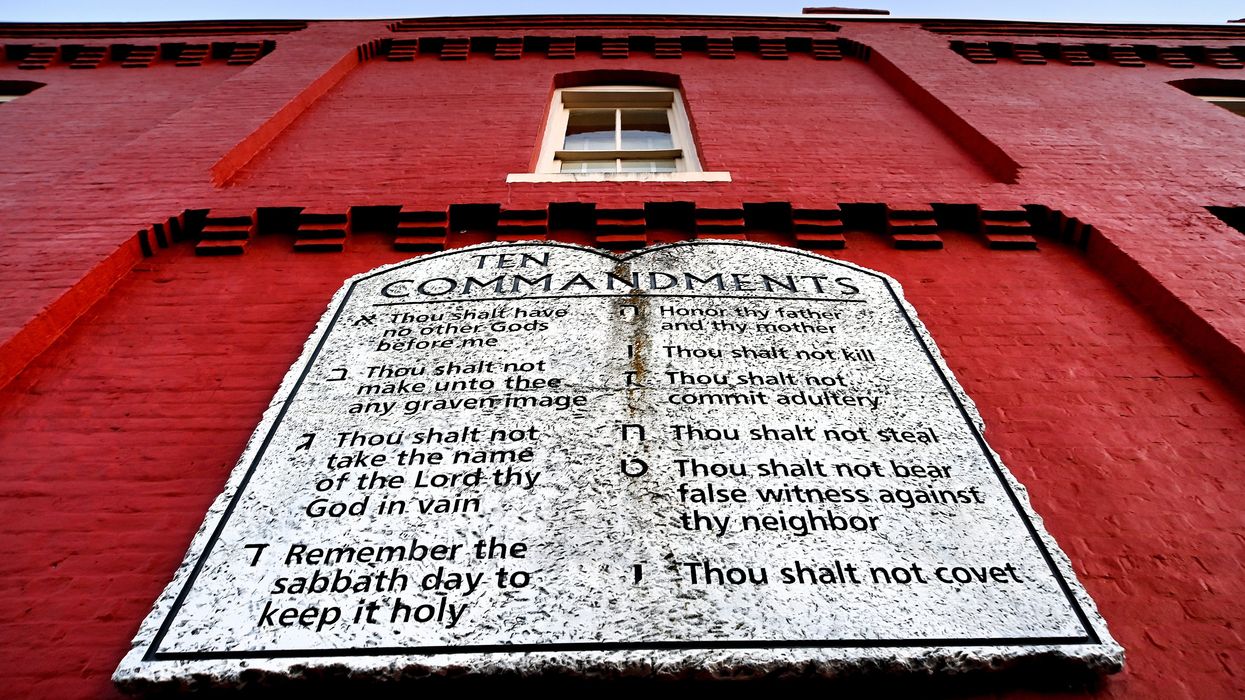Johnson is a United Methodist pastor, the author of "Holding Up Your Corner: Talking About Race in Your Community" and program director for the Bridge Alliance, which houses The Fulcrum.
As an African American Christian cleric, I am deeply troubled by the recent legislative mandates from states like Oklahoma and Louisiana. New laws, passed under the guise of promoting religious freedom and moral values, require Christian biblical education and the display of the Ten Commandments in public spaces. While I believe in the power and wisdom of Scripture, I fear we are misapplying God's commandments to serve man's commands.
We risk using the sacred texts of our faith to impose a particular religious viewpoint rather than allowing them to guide us toward justice, compassion and love. This misuse of religious texts in legislation is not just a cause for concern; it is a serious issue that demands our attention, as it may lead to unintended and potentially harmful consequences.
The heart of Black Liberation theology is freedom from oppression and flourishing as God's children. This tradition, born out of the struggle for racial justice, emphasizes the biblical message of deliverance and equality. Yet, when we use the Bible as a tool of legislation, are we not risking a new form of spiritual bondage? Do we not threaten the principles of religious liberty and pluralism that our nation was founded upon? The state cannot compel faith, for faith is a response to the loving call of God. It is a matter of the heart, not a matter of law. Legislation may force outward compliance, that is, adherence to the letter of the law, but it cannot reach the inner depths of the soul where true faith resides, which is the essence of inward transformation.
The Wesleyan tradition, too, emphasizes the personal and transformative nature of faith. John Wesley preached a gospel of grace that changes lives from the inside out. He spoke of a faith that warms the heart and motivates us to live a life of love and service to others. The transformative nature of faith is a gift from God that must be freely given and received; it cannot be legislated. When we try to mandate its tenets, we risk cheapening the very concept of grace. Let the potential for positive change from a genuine, transformative encounter with the living God inspire us. This transformative nature of faith should not just inspire us, it should fill us with hope for a better future.
The Ten Commandments are a gift from God, a revelation of His holy character. But they were given to His covenant people, those already in a relationship with Him. They were a guide for living as a community of faith, not a set of rules to impose on others. They are a guide for living as people of God, not a code for controlling others. Displacing them as a symbol of moral order, devoid of their covenant context, may lead to legalism, a strict adherence to the law at the expense of the spirit of the law, rather than true righteousness. It may lead to a focus on outward obedience rather than inward transformation.
I am not advocating a naked public square devoid of faith. On the contrary, faith plays a vital role in shaping our values and inspiring us to work towards the common good. This role of faith in shaping our values and society cannot be achieved through legislation. Responsibility and duty come from a deeper understanding of faith — faith is a transformative encounter with the living God. Only such faith can bring about actual social change.
The prophet Micah said, "What does the Lord require of you? Act justly, love mercy, and walk humbly with your God." This is the heart of biblical faith. Can legislation achieve this? Can laws and regulations inspire us to love our neighbors, to care for people experiencing poverty, and to work towards justice and equality? No, it is our faith and our understanding of it that must guide us in these endeavors. This emphasis on the importance of faith in shaping our values should not just guide us; it should empower us and make us feel responsible for our actions.
As a nation, we must wrestle with the role of faith in the public square. We must navigate the complex issues of religious freedom, pluralism and the common good. But let us be careful. The power of faith lies not in its ability to control others but in its power to transform hearts. It is the power to inspire us to live lives of love, compassion, and service.
A word of caution may be our modeling the transformative love of God rather than trying to mandate the presumed imperatives of God. Only then can we hope to see true renewal and justice roll down like a mighty stream. Only then can we expect to build a society that reflects the values of justice, equity and love at the heart of the gospel.




















Trump & Hegseth gave Mark Kelly a huge 2028 gift